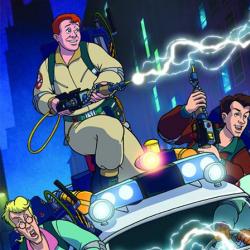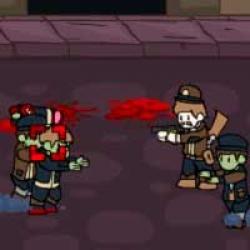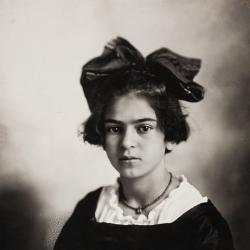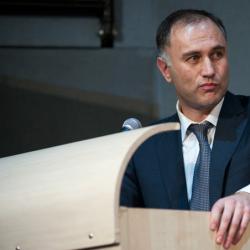All French tenses table. Past tense: Le passé en français, qu'est-ce que c'est? Subjunctive - Subjonctif
The past tense in French is not as difficult to construct as it might seem at first glance. A little practice and you will apply all the rules and exceptions automatically.
past tense or Passe Compose most French verbs are formed with an auxiliary verb avoir(to have) or with the help of a verb être(to be) in the present tense and past participle of the main verb.
- Most of the verbs of the first group (ending er é :
- parler - parl é - speak
- marcher-march é - walk
- Verbs of the second group (ending ir) form the past participle with i:
- grandir - grand i- grow
- sortir - sort i- go out
- Verbs of the third group (endings re, oir) form the past participle with u:
- attendre - attend u- wait
But, as always, there were exceptions. Some verbs do not form the past participle according to the rules. Therefore, they must be remembered.
- avoir - eu - to have
- être - été - to be
- faire - fait - to do
- prendre - pris - to take
- mettre - mis - to put
- dire - dit - to speak
- ouvrir - ouvert - to open
- écrire - écrit - to write
So, to form the past tense, we use the formula:
the present tense form of the verb avoir or être + the past participle of the main verb.
- J "ai fait le travail hier. - I did the work yesterday.
- Nous avons parle avec nos parents la semaine dernière. - We talked to our parents last week.
Most verbs form the past tense with the verb avoir. But there are a few that are used in passé composé with the verb être.
There are few of them. To make it easier to remember them, remember that these verbs refer to movement. Here they are:
- arriver - arrivé(e)(s) - arrive
- entrer - entré (e) (s) - enter
- aller - allé(e)(s) - to go
- venir - venu(e)(s) - to come
- mourir - mort(e)(s) to die
- tomber - tombé(e)(s) - to fall
- partir - parti (e) (s) - leave
- monter - monté(e)(s) - to rise
- sortir - sorti(e)(s) - exit
- rester - resté(e)(s) - stay
- descendre - descendu(e)(s) - descend
- retourner - retourné (e) (s) - to return
- naître - né(e)(s) - to be born
Because in combination with the verb être participles agree in gender and number with the subject to which they refer; in the list above, after each verb, participle endings are indicated in brackets.
- If the subject is masculine and in singular. number, then no endings need to be added.
- If the subject is feminine and in singular. number, to the participle you need to add the ending e.
- If the subject is plural, add the ending s.
Here are some examples:
- pierre est arrive é hier. - Pierre arrived yesterday. (m. gender, singular number)
- Ma sour est arrive ee hier. - My sister arrived yesterday. (f. gender, singular)
- Mes parents sont arrive es hier. - My parents arrived yesterday. (plural)
- Mes amies sont arrive ees hier. - My friends arrived yesterday. (f. gender, plural).
By the way, the verb être itself forms a passé composé with the verb avoir! For example, the sentence: Tu as été au cinéma? - Have you been to the cinema?
Like the article? Support our project and share with your friends!
It's no secret that the grammar of the French language has a fairly high complexity, which can be the cause of difficulties in the learning process. But nothing is insurmountable, everything can be sorted out. This classification will make it easier to understand and memorize the tenses of French verbs.
There are many more tenses in French than in Russian and they are divided into simple tenses and compound tenses. Simple ones are formed without the use of auxiliary verbs, while complex ones are formed with their help. There are only four auxiliary verbs: être, avoir, venir and aller. The last two auxiliaries are used to form the near past and near future tenses (the tenses immédiat), while the rest of the tenses are formed using être or avoir in a specific form.
Before considering individual tenses, it is worth remembering that French verbs change according to moods. It is the mood that indicates how the action that the verb expresses relates to reality. There are four moods in French.
Verbs of the first, indicative mood (Indicatif) denote a very real action that happened, is happening at the moment or will actually happen in the future. The verbs of this mood change with tenses.
The present tense (Présent) of the indicative mood is used to denote an action that takes place in the present or about an action of a timeless nature, that is, inherent in all times. In the meaning of the future, it can be used if the speaker is absolutely sure that the described event or action will occur. Formed by adding the endings -e -es -e (for the singular of the first group), -is -is -it (for the singular of the second group) and -s / x -s / x -t / d (for the singular of the third groups). The endings for plural verbs are the same for all groups: -ons -ez / es -ent, only for verbs of the second group, the suffix -iss is added before the ending.
Examples: je parle - I'm talking; nous finissons - we are finishing;
There are seven past tenses in French, each of which brings a certain shade to the meaning of the sentence as a whole.
Thus, Passé immédiat expresses an action in the past tense that has just or recently ended. For example: Tu as vu la lettre? - Did you see the letter?
Passé immédiat dans le passé is used to agree on tenses when the verb of the main clause is in the past tense or the narration is in the past tense. For example: Quand je lui ai telephoné, il venait de lire la lettre. When I called him, he had just read the letter.
Imparfait expresses a long unfinished action in the past, a general description of the past tense, or a description of routine actions taking place in the past. Also, this tense can be used to express a polite wish or offer to do something, or in an interrogative and exclamatory sentence after si. Examples: il neigeait - it was snowing; il se levait à six heures du matin - he usually got up at six in the morning; si l'on prenait du café ou du thé? - Shall we have a cup of coffee or tea?
Passé composé answers the questions “what did/did you do?” and expresses past actions that are clearly limited in time, and Passé simple, in turn, is used to express a past action that has no connection with the present and is often used in written speech. For example, elle est venue hier - she arrived (Passécomposé); Rodin naquit en 1840 - Rodin was born in 1840 (Passé simple).
Plus-que-parfait is used to express the sequence of completed actions, that is, it makes it clear which action happened before and which after it. Can express speculation or regret about a past action when used after si. For example, elle a dit qu'il était venu hier - she said she arrived yesterday.
The last tense we will look at, Passé antérieur, is used in conjunction with the passé simple and using temporary conjunctions to express a sequence of actions. For example, Dès qu'elle eut lu cette télégramme, elles'y intéressa - As soon as she read this telegram, she became interested.
There are only six tenses relating to the future tense of the indicative mood, including those already known to us.
Futur immédiat is used to express an action that must take place in the very near future, as well as to convey orders and advice. For example, elle va terminer l "école l'année prochaine - She will finish school next year.
Sentences that are composed using Futur immédiat dans le passé express the near future action in relation to the past tense, that is, “I was about to do something”, moreover, it is used if the narrative is about the past tense, to match times. For example, il allait sortir lorsque sa mère est venue - he was about to leave when his mother arrived.
Futur simple expresses a future action, a polite order or request, and may indicate a proposed action. Such sentences will be translated into Russian using the words “should, probably, probably, possibly”. For example, on se rencontrera après-demain - see you the day after tomorrow.
The use of Futur dansle passé is due to the need to express an action in the future in relation to a past action, or is used to agree on tenses if the verb in the main clause is expressed in the past tense. For example, Ils auraient une maison blanche de pierres blanches, ils rêvaient de vivre à la campagne - they will have a white stone house, they dreamed of living in the countryside.
Futur antérieur expresses an action that will be performed in the future before someone else's future action, in the case of using certain tense prepositions, such as: aussitôt que, dès que, sitôt que, quand, à peine…que, lorsque. Can convey a possible action that refers to the past. For example, je ne trouve pas mon crayon. Je l'aurai oublié chez moi - I can't find a pencil, I probably forgot it at home.
Futur antérieur dans le passé is used to agree on tenses, and also expresses an action that will take place in the future before another future action. For example, Il m'a dit qu'il me téléphonerait dés qu'il aurait reçu leur réponse - he said that call me as soon as he gets an answer.
Conditional verbs (Conditionnel) do not denote a real action, but only a possible one under certain conditions (in Russian, such sentences are built with the particle “by”). In this mood, two tenses are distinguished: the present (présent) and the past (passé). Verbs in the present tense denote an action that can be carried out, and verbs used in the past tense denote actions that could have been carried out in the past, but for some reason were not realized and now this can no longer happen. Examples: Si tu me l'expliques, je resterai. - I'll stay if you explain to me (real). J'aurais pu être père! - I could be a father! (past).
The subjunctive mood (Subjonctif) is used to denote actions that are presented from a subjective point of view and express the desires, insecurities, fears of the speaker. Previously, in French, four different tenses were used within this mood, but now only two are actively used - présent and passé. For example, qu'ils fassent ce qu'ils veulent - let them do what they want. Qu'elle danse - Let her dance.
And the last, fourth inclination - imperative or Impératif, denotes an action that expresses an order, request, advice, motivation for action. As in the previous two moods, two tenses are used - présent and passé. For example attendons! - wait! Vas-y! - Go there! levez vous! - get up!
There are more times in French than in Russian. They are divided into simple and complex. simple tenses formed without an auxiliary verb, complex- using an auxiliary verb. There are 4 auxiliary verbs: avoir, être, aller and venir. The last two are used to form the tenses of the immédiat group - the near past (venir) and the near future (aller). The rest of the times are built using avoir or être, standing in a certain time.
In addition to tenses (present, past and future), the French verb changes in mood. Mood The verb shows how the action relates to reality, whether it is real or depends on desire or condition.
There are 4 moods in French:
1. Indicative mood - Indicatif
Verbs in the indicative mood denote a real action that is happening, has happened or will actually happen. Verbs in the indicative mood change with tenses.
Chain of basic indicative tenses

| Indicative | simple tenses | difficult times |
| past tenses | passe simple | passé compose |
| passé anterieur | ||
| passé immediat | ||
| passé immediat dans le passé | ||
| present time | present | |
| (present dans le passé) | ||
| future tenses | ||
| future dans le passe | future anterieur | |
| futur anterieur dans le passe | ||
| future immediat | ||
| futur immediat dans le passé |
2. Conditional mood - Conditionnel
Verbs in the conditional mood denote an action that is not real, but possible when a condition is implemented (in Russian, these are sentences with a particle would). In French, there are 2 tenses in this mood: present and past. The difference between them is that the verb in the present tense denotes an action that can be carried out; and in the past tense - that which could have been realized in the past, but was not realized for some reason and will not happen again.
3. Subjunctive - Subjonctif
Verbs in the subjunctive mood denote an action that is presented with the subjective assessment of the speaker (desire, wish, fear, uncertainty, etc.). French has 4 tenses within this mood, but only 2 (présent and passé) are currently used.
We are glad to welcome all lovers of the French language on our website! Today we will talk about the past tense of French verbs. What is the past tense? This is a tense that indicates an action in the past.
The fact is that in French there are several types of the past tense. And although not all of them are used in oral speech and, sometimes, the French themselves make mistakes in this matter, however, in writing it is very important to use tenses correctly.
Le Passé Composé we use most often
It really is, friends. If we don’t know how to correctly coordinate tenses in a sentence, what kind of past tense to use in order to make the sentence grammatically correct, Passé Composé comes to the rescue. – past compound (compound) tense . The French themselves do not always agree on tenses, especially in oral speech. And in order to save time, I put the verbs in Passé Composé if the action took place in the past, and went on.
Le Passé Composé means a completed action and is formed with the present tense verb Avoir + participe passé of the conjugated verb. Each group of verbs has its own ending in participe passé (past participle): 1st group - é; 2nd group - i; well, and the 3rd group - there are capricious verbs, each has its own ending. So let's conjugate the verbs!
Verb conjugation in Passé compose| Commencer - start J'ai commence Il/elle a commence | Rougir - to blush Il/elle a rougi | Ouvrir - to open Il/elle a ouvert |
All verbs in Passé Composé conjugate with Avoir, but there are 12 verbs (along with their derivatives) that conjugate with Etre:
- naître (p. p. né) - to be born,
- aller (p. p. alle) - to go,
- venir (p. p. venu) - to come,
- entrer (p. p. entré) - to enter,
- monter (p. p. monté) - to rise,
- rester (p. p. resté) - to stay,
- descendre (p. p. descendu) - descend,
- sortir(p. p. sorti) - exit,
- partir (p. p. parti) - to leave,
- arriver (p. p. arrivé) - to arrive,
- tomber (p. p. tombé) - to fall,
- mourir (p. p. mort) - to die.
All reflexive verbs also conjugate with the verb Etre.
To conjugate the verbs "to have" and "to be" in Passé Composé, you need to know their participe passé: Avoir - eu and Etre - été.
Le Passé Simple - what you need in a letter
Passé Simple is the simple past tense and denotes a completed action. But it's not as simple as its name suggests. Here you need to know the forms and endings of verbs for their conjugation in a given tense. The Passé Simple is never used in speech, and always in writing when it comes to past actions. It is formed like this: the stem of the verb + the endings necessary for each group. In this table, the endings are highlighted:
| 1st group Parler - to speak Tu parl as Il/elle parl a nous parl ames vous parl ates Ils/elles parl erent | 2nd group Finir - finish Je fin is Tu fin is Il/elle fin it nous fin Omes vous fin îtes Ils/elles fin irent | Jel is Tu l is Il/ellel it nous l Omes vous l îtes Ils/ells l irent
Jep us Tup us Il/ellep ut nous p ûmes vous p Ytes Ils/ellsp urgent |
Avoir/Etre:
J'eus/fus
Tu eus/fus
Il/elle eut/foot
Nous eymes/fûmes
Vous eûtes/fûtes
Ils/elles eurent/furent
L'Imparfait - if the action is not completed
L'Imparfait is perhaps one of the easiest French verb tenses. There are always stable endings for any group, the main thing is to correctly identify the stem of the verb. L'Imparfait indicates an incomplete action in the past tense and corresponds to the imperfect form of verbs in Russian.
Je parl ais
, finissais, mettais
Tu parl ais
, finissais, mettais
Il/elle parl ait
, finissait, mettait
nous parl ions
, finissions, mettions
vous parl iez
finissiez, mettiez
Ils/elles parl aient
finissaient, mettaient
Avoir/Etre:
J'avais/etais
Tu avais/etais
Il/elle avait/était
Nous avions/étions
Vous aviez/etiez
Ils/elles avaient/étaient
Le Passé Antérieur - Past Immediate Tense
This tricky time is not used in oral speech, but only in writing. You need to use it only after certain unions:
- quand - when
- lorsque - when
- après que - after
- dès que - as soon as
- aussitôt que - as soon as
- sitôt que - as soon as
- à peine que - barely.
The verbs in Passé Antérieur are conjugated with the verb Avoir and Etre (the same 12 verbs, see above) in Passé Simple + participe passé of the conjugated verb:
j' eus parle nous eymes parle
tu eus parle vous eytes parle
il/elle eut parle ils/elles eurent parle
je fus alle nous families alle
tu fus alle vous fûtes alle
il/elle feet alle ils/elles furent alle
Example: Dès que Jean eut lu cette nouvelle, il s'y intéressa. - As soon as Jean read this news, he became interested in it.
Le Passé Immédiat - you have just taken an action
From the name it is clear that this past tense indicates that the action has just taken place. We conjugate the verbs in Passé Immédiat with the verb Venir + de + the infinitive of the verb:
Je viens de faire
Tu viens de faire
Il/elle vient de faire
nous venons de faire
Vous venez de faire
Ils/elles viennent de faire
Le Passé Surcomposé and Le Plus-que-Parfait
These two tenses play an important role in coordinating tenses in a sentence, but we will talk about this in our next lessons. The schema of Passé Surcomposé is: Avoir (Etre) in Passé Composé + participe passé of the verb.
J'ai eu parle
J'ai ete entre
The Plus-que-Parfait scheme is: Avoir (Etre) in I ;pqrfqit + participe passé of the verb.
Javais parle
J'etais entre
If you are still new to French, then you should not plunge headlong into the use of each tense, the reasons, etc. yet. To begin with, learn to conjugate verbs, do not be afraid to make mistakes, through mistakes knowledge comes to us.
As you can see, friends, there are a lot of past tenses in French. Visually, with examples, we will consider all this in the article on the coordination of times. For now, you can practice conjugation of verbs, learn endings. We wish you success!
Traditionally, the tenses of French verbs are a complex structure, including the distribution into three main categories (future, present and past tense) and providing for the distribution into simple and complex structures, depending on the method of formation used. All four types of French mood have their own set of temporary forms (Indicatif - will express, Impératif - will command, Conditionnel - conditional and Subjonctif - exile.). Consider the tenses of French verbs in more detail.
So, indicative(action as fact) provides for the use of twelve temporary forms of the present, future and, of course, past tense, five of which are simple, the remaining seven are complex. Simple temporary forms of the indicative mood include, first of all, such dominants as:
1. Pré sent- is formed by adding a system of inflections (for example, for the first person singular - -e (ch. 1 group), -is (ch. 2 groups); -s / -x + alternating bases (ch. 3 groups) for 1 person plural - -ons (for all main groups)) to verb stems (without endings) indefinite. forms and is used to display ordinary, regular actions, or actions taking place in the present time period. —
Vous allez souvent au theater. — You often go to the theatre.
2. Passesimple — formed by adding a system of inflections (for example, for the second person singular and plural - -as; -ites (ch. 1 group), -is; -tes (ch. 2 groups); -is (-us) -ites + alternate stems (ch. 3 groups) and is used to indicate completed actions in the past, without being used, at the same time, in colloquial speech.The sphere of use of Passé simple is a connected literary text in which verbs in a given tense form are used in mostly in the singular or plural of the third person -
Chlodwig devint le premier roi de la dynastie de Mérovingiens l'année 486. - Clovis became the first king of the Merovingian dynasty in 486.
3. Imparfait — formed by adding a system of inflections (-ais, -ais, -ait, -ions, -iez, -aient.) and is used to indicate past actions of an incomplete type, repeated past actions, as well as descriptions and polite requests. —
Il lisait beaucoup l'année dernière. He read a lot last year. (unfinished action in the past).
4. Futur simple— formed by adding a system of inflections (-ai, -as, -a, -ons, -ez, -ont. (explain what inflections are added to) - verb units of the 3rd group have their own characteristics) and is used to indicate future actions . —
Il revendra pas de sitôt. - He won't be back soon.
5. Futuredanslepasse — formed by adding a system of inflections (-ais, -ais, -ait, -ions, -iez, -aient) to verbal units indefinitely. forms and is used to display future actions in relation to the past tense, mainly used in the framework of additional clauses. —
Elle a dit qu'elle vous aiderait. She said she would help you.
Complex indicative temporary forms, in turn, include:
1. Presentcontinuous- is formed analytically - through a combination of the auxiliary unit être (in the form of the present tense), the stable element en train de, as well as the main verb in its indefinite. form - and is aimed at denoting actions performed immediately at the moment (now). This temporary form is used very rarely in the language, as a rule, being replaced by the Présent form. —
Ils sont en train de déjeuner en ville. — (They are (now) dining out) = Ils déjeunent en ville
2. Passecompose- is formed analytically - through a combination of the auxiliary unit avoir or être (in the form of the present tense) and the main or base verb (in the form of Part. pas. - past participle) - and indicates the completion of actions or emphasizes their effectiveness. —
Avez-vous déjà regard é cette piece? Have you already seen this play?
3. Plus-que-parfait- is formed analytically - through a bunch of auxiliary unit avoir or être (in the form of imparfait) and the base verb (in Participe passé) - and contains an indication of the precedence of one past action to another. Often used in subordinate clauses of a condition, as well as to add additional shades of regret or politeness to phrases. —
Si seulement j'é tais venu a temps! If only I had come on time! (regret)
Si vous m'aviez laiss e en paix, je ne ferais mal. (If you had left me alone, I would not have acted badly).
4. Passeimmediat- is formed analytically - by a combination of the verb unit venir (in the form of present tense), the preposition de and the infinitive of the main verb - and is used to indicate recently or just committed actions (just about, etc.) -
Ils viennent de toucher vers la fin. “They just came to an end.
5. Passeanterieur- complex, analytical time, based on a combination of the auxiliary unit avoir or être (in the form of passé simple) and the main verb (in the form of Participe passé); used only after certain conjunctions (quand - when, dès que - as soon as, lorsque - when, etc.) to indicate the precedence of one completed action to another or to indicate the completeness and speed of past actions (en un moment (per minute), bientôt (soon)). It is the prerogative of written literary texts. —
Bientôt j'eus dé cidé de différer mon départ. - Soon I decided to postpone my departure (final action)
Quand la conversation fut tombé sur cette question, il s'intéressa. — — When the conversation touched on this issue, he became interested. (comb. with Passé simple in the main)
6. Futur immé diat- an analytical form formed on the basis of a combination of the verb unit aller (in the form of present tense) and the infinitive of the main verb; used to record actions expected in the near future (soon). —
Nous allons quitter ses etudes. We are going (soon) to leave school.
7. Future anté rieur- a complex form formed on the basis of a combination of the auxiliary unit avoir or être (in the form of futur simple) and the main verb (in the form of a past adverb); used to express the precedence of one future action to another; reflecting the completion of actions by a certain time (vite - quickly, Dans sept heures - after seven hours, etc.); expressions of the probabilistic nature of actions. —
Apportez-moi ce journal, des qu'il aura sorti du sceau. Bring me this paper as soon as it's out of print. (precedence)
J'aurai fait un faux numéro. “I must have got the wrong number. (assumption)
Imperative mood(transmission of wills), in turn, is characterized by the possibility of using verbs in its two main tense forms:
1. (impé ratif) present- is formed synthetically (inflectionally) and has only three forms - the second person, both singular and plural (you and you) and only the first person plural (we); used when it is necessary to transmit requests, orders, wishes and other expressions of will. —
Attendez-my ici. - Wait for me here. (coincides with the form Indicatif Présent - (vous) attendez)
2. (impé ratif) passe- an analytic form formed by combining the auxiliary unit avoir or être (in the form of impératif présent) and the main verb (in the form of Participe passé) and has only three forms (by analogy with ( (impé ratif) present); is used extremely rarely to express actions that must be completed before another action or within a certain time period in the future. —
Aie décidé les problèmes, jusqu'à ce que il telephone. Solve your problems before he calls.
A yez pris des notes avant son depart. Record the lecture before he leaves.
It should be noted that pronominal verbs are deprived of this form of the imperative mood.
French verbs have two tense forms and in conditional mood(transfer of possible actions). —
1. (Conditionnel)pré sent- a simple, synthetic form structured by adding a system of inflections (endings imparfait - -ais, -ais, -ait, -ions, -iez, -aient) to the infinitive stems of the base verb (for verbs of the third group, they will coincide with Futur simple); it is used when conveying assumptions, requests (along with command. incl.), doubts about the present or future, etc., as well as in subordinate clauses of the condition -
Je voudrais encore un peu de sel. — I would like some more salt. (request)
Elle accé derait à notre proposition, peut-être. “Perhaps she would agree (or perhaps not) to our proposal. (doubt)
Si tu te calmeras, nous fixerions rendez-vous. - If you calm down, we would still agree on a meeting. (condition)
2. (Conditionnel passé - a complex analytical tense form formed by combining the auxiliary unit avoir or être (in the form of Conditionnel présent) and the main verb (in the form of Participe passé); used to display hypothetical, possible, intended actions in the past, as well as in subordinate clauses of a condition (if they are related to the past). —
L'inondation aurait fait des dégâts. — The flood obviously caused damage. (assumption)
Je ne serais pas parti hier ainsi tôt, si mon frère n'était allé en visite. I wouldn't have left so early yesterday if my brother hadn't come for a visit. (unrealized past action)
And finally in subjunctive(transmission of the speaker's personal attitude to what was said) four main temporary forms are used, two of which are considered simple:
1. (Subjonctif) pré sent- a simple form constructed by adding a system of inflections (-e, -es, -e, -ent) to the stems of the plural of the third person of the present tense of the base verb (in relation to the forms of the first and second person singular and the third person both singular and plural numbers) and endings -ions, -iez to the plural stems of the first person of the present tense of the base verb (in relation to the forms of the first and second person plural), while the obligatory use of que before the subject is observed. It is used to express the following or simultaneity of actions related to the present (less often the future). —
Mes parents sont contents que je vienne à la maison. My parents are glad that I'm coming home.
2. Imparfait (du subjonctif)- synthetic formation by adding a system of inflections (-se, -ses, -t, -sions, -siez, -sent.) to the stems of the second person singular of basic verbs in the passé simple (+ alternation -s / -t, in the third face singular). It is used mainly to display the succession or simultaneity of actions implemented in the past, when coordinating times. Rarely used, only in written sources. —
Mes parents étaient contents que je vinsse à la maison. My parents were glad that I was coming home.
The remaining two temporary forms of the subjunctive mood are complex:
1. (Subjonctif) passé - analytical formation using a combination of the auxiliary unit avoir or être (in the form of Subjonctif présent) and the main verb (in the form of the past participle); used in subordinate clauses to fix the precedence of the speech moment (before the action, expressed by the verb in the main sentence). —
Mes parents sont contents que je sois venu à la maison. My parents are glad that I came home.
2. Plus-que-parfait (du subjonctif)- a complex form formed by combining the auxiliary unit avoir or être (in the form of imparfait du subjon.) and the main verb (in the form of the past participle); used in the timing process to fix precedence. Almost never used in real communication.
Mes parents étaient contents que je fusse venu à la maison. My parents were glad that I came home.
Thus, we get the following branched structure, which is the tenses of French verbs:
Time
| Forms
|
|
simple |
complex |
|
Indicatif - express. mood |
||
real
|
|
Présent continu (very rarely used)
|
past
| Plus-que-parfait Passé immediat Passé antérieur (not used in colloquial speech) |
|
future
| Futur dans le passe | Futur anterieur |
Itemperatif- command. mood |
||
real
|
|
—
|
past
|
—
|
Passé (very rare)
|
future
|
—
|
—
|
Conditionnel - conditions. mood |
||
real
|
|
—
|
past
|
—
|
|
future
|
—
|
— |
Subjonctif - exiled. mood |
||
real
|
|
—
|
past
| Plus-que-parfait (almost never used) |
|
future
|
—
|
—
|
Impersonal verb forms |
||
real
|
Infinitif present
Participe present
|
—
|
past
|
Participe passe
|
Infinitif passe
— |
future
|
— |
— |
The table also implies the possibility of distinguishing by tense and with respect to a number of impersonal verb forms, such as participle and infinitive, however, this aspect is far from unambiguous and requires separate coverage.






